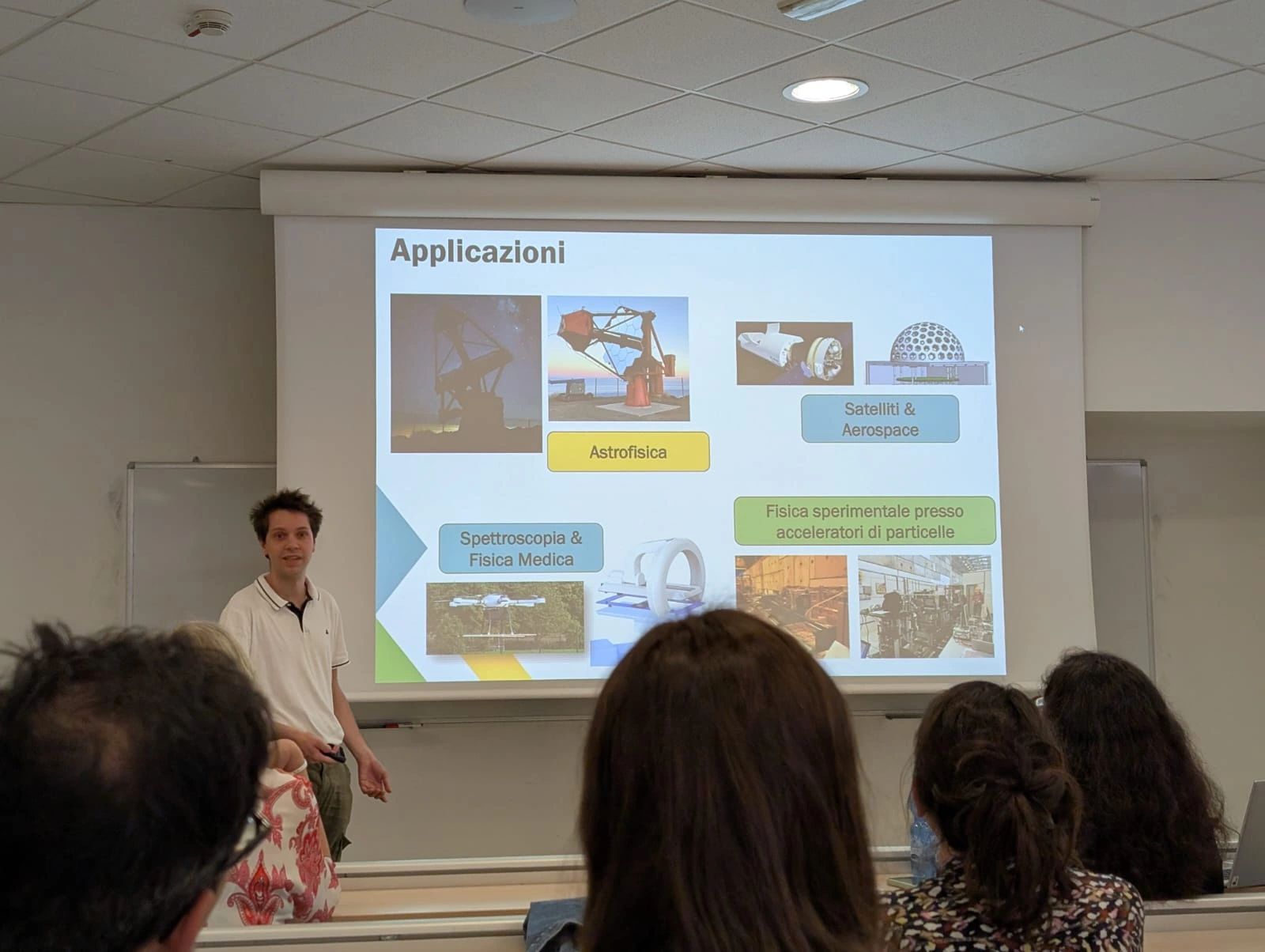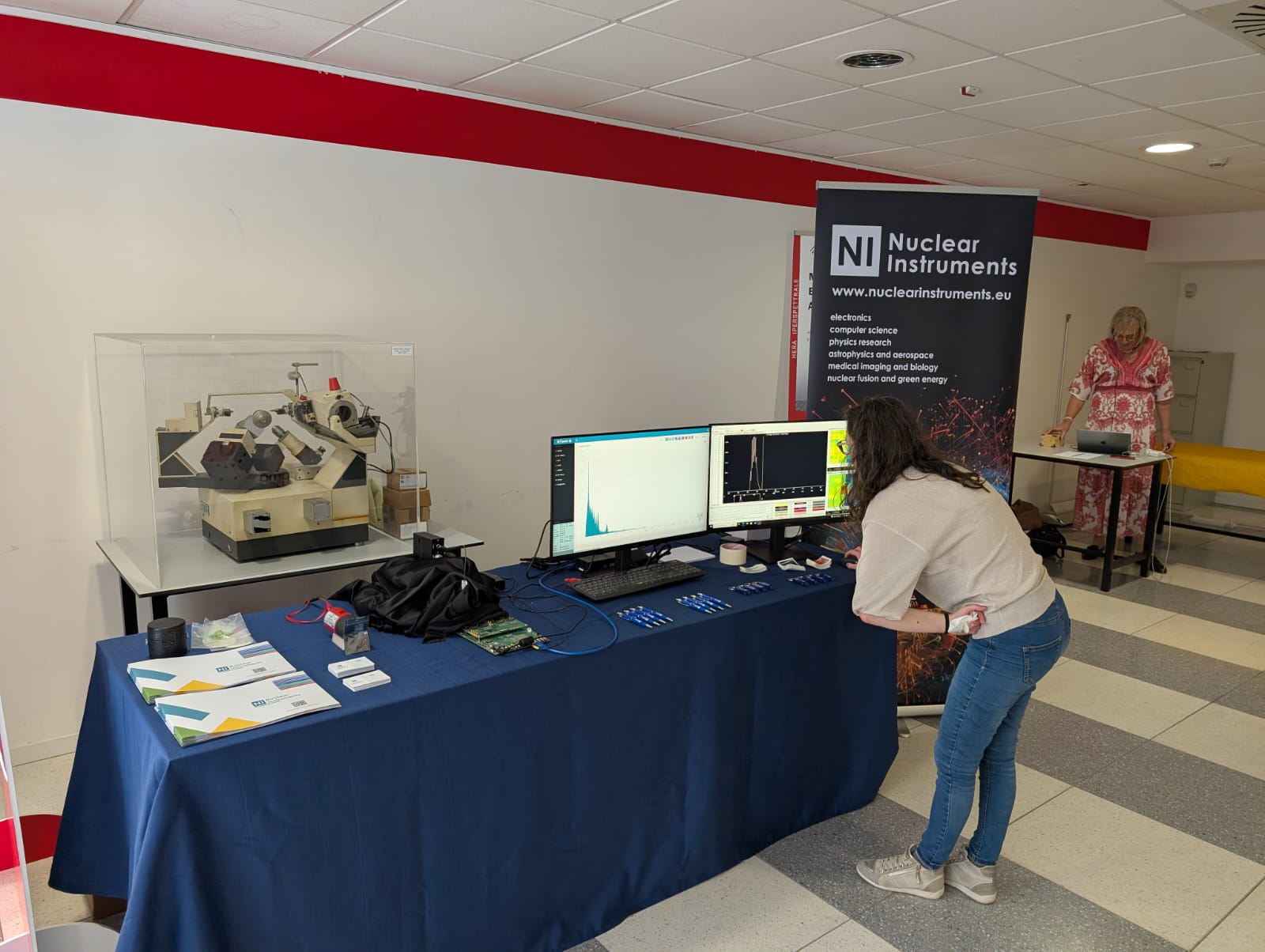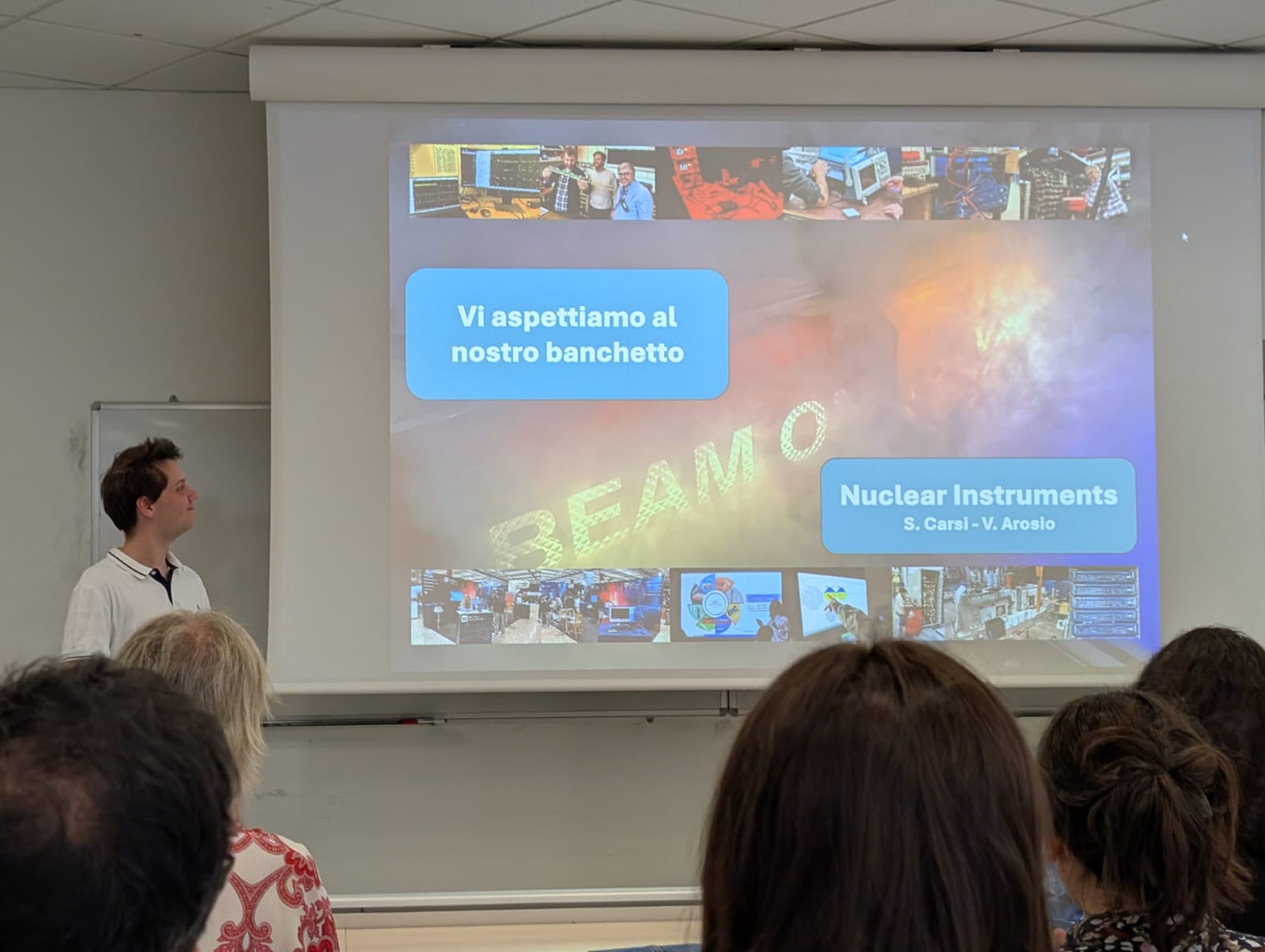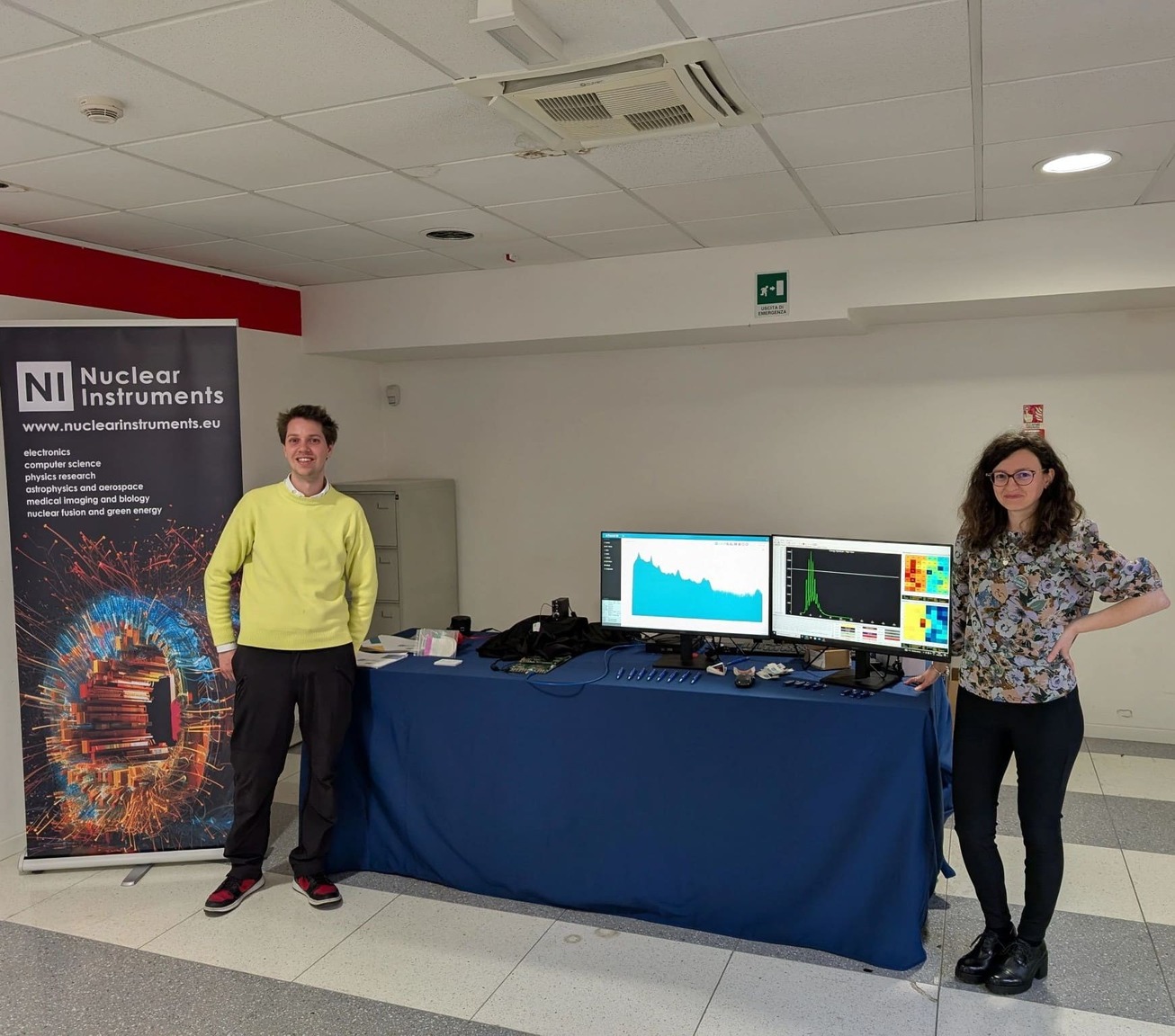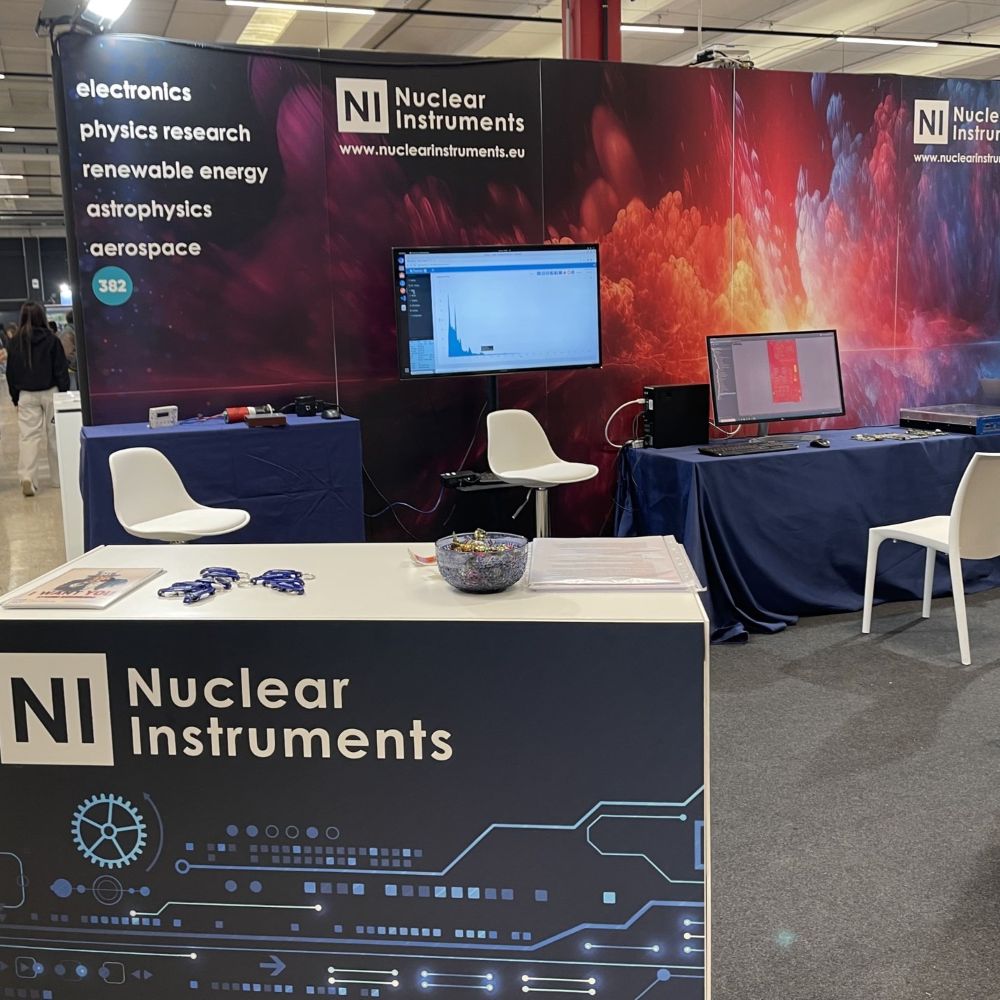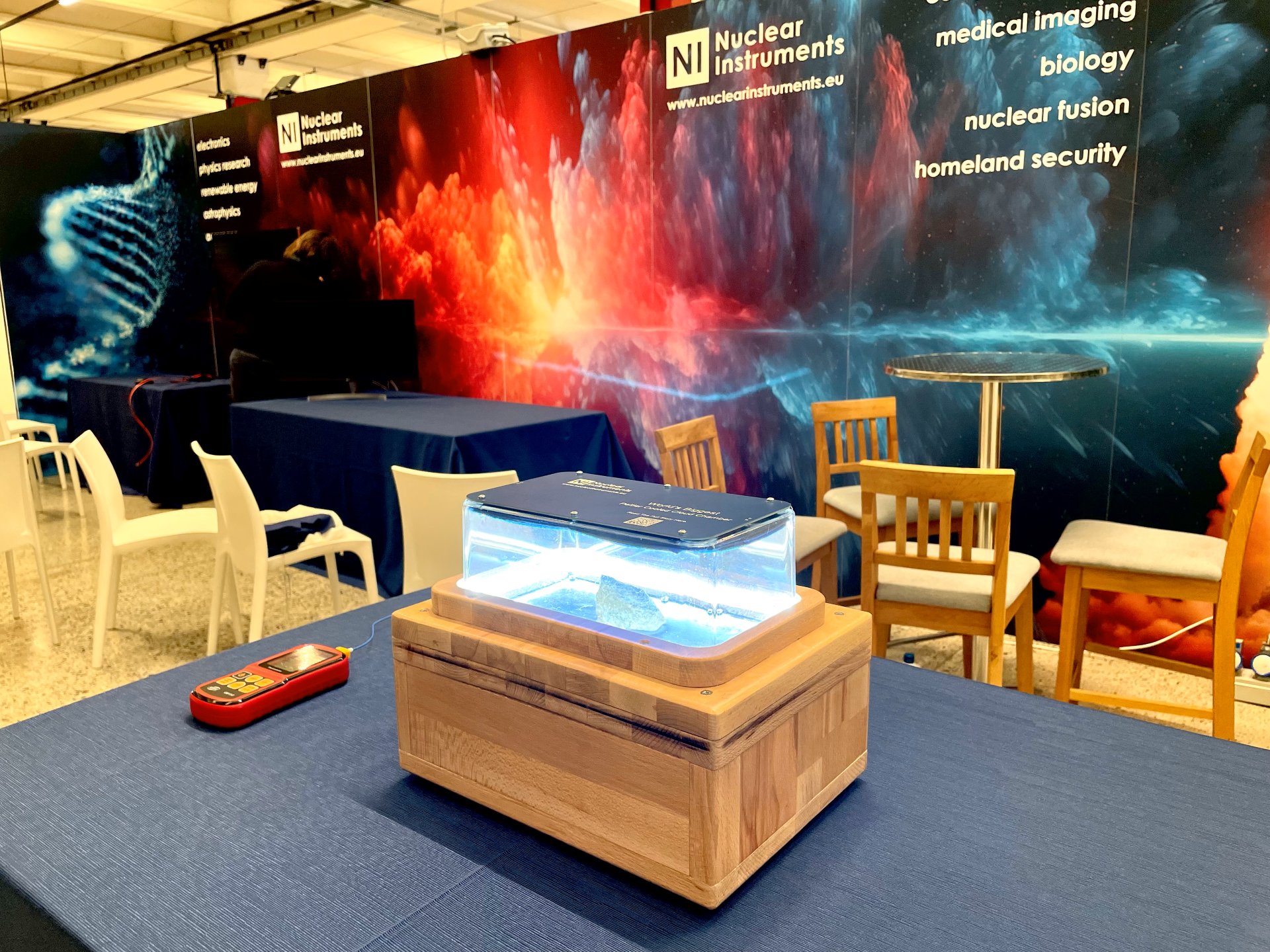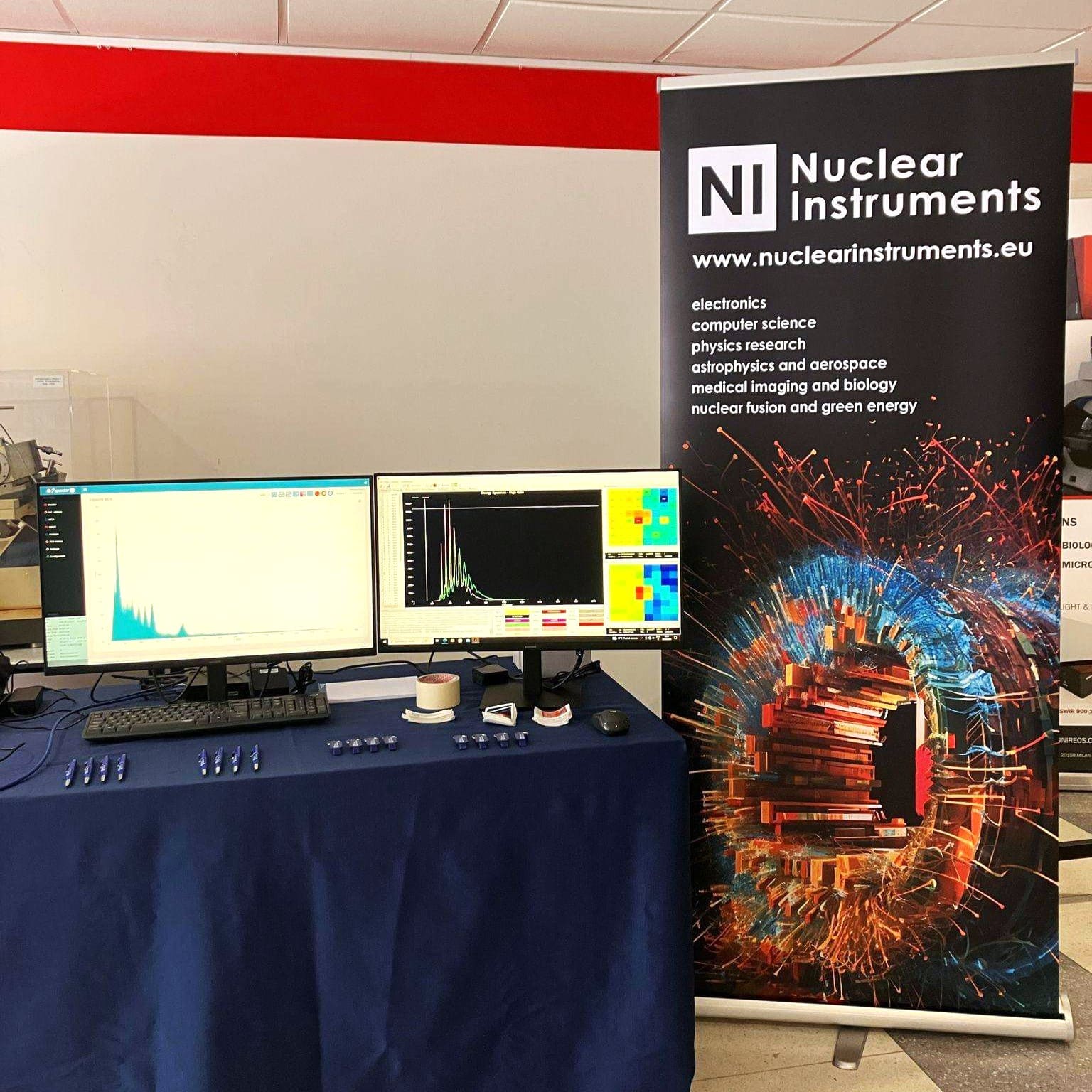
On April 30, 2025, the Nuclear Instruments team joined the University of Insubria “Aperiposter” open-day, showcasing live demos of our cutting-edge data-acquisition systems and presenting real-world thesis projects to physics undergraduates and doctoral candidates. The relaxed, interactive format fostered engaging discussions, networking and potential research collaborations.
-
Date
Apr 30, 2025
Physics Aperiposter at University of Insubria: Demos & Thesis Opportunities with Nuclear Instruments
Welcome at Aperiposter
On April 30, 2025, Nuclear Instruments participated at the “Aperiposter” open day for Physics undergraduates and doctoral students at the University of Insubria. The event brought together curious minds eager to learn about cutting-edge electronics in scientific research. For us, it was the ideal opportunity to present our company’s mission, share insights into our data-acquisition systems, and spark conversations about possible thesis collaborations.
3 Minutes to Pitch
With only 180 seconds on stage, we distilled years of R&D into a concise presentation. We highlighted how our systems support experiments in astrophysics and nuclear physics, detailed their role in advanced spectroscopy studies, and even showcased their applications in satellite instrumentation. Our aim was to be clear and engaging—giving students a snapshot of real-world challenges they could tackle in their theses.
Hands-on Demos
At our booth, we brought the technology to life with live demonstrations of our electronic acquisition modules. Students and doctoral candidates gathered around as our data boards streamed real-time signals, allowing for hands-on exploration of signal processing and measurement accuracy. These direct interactions led to in-depth discussions on system design, data analysis strategies, and potential thesis topics tailored to their interests.
Tailor-made Theses & Thanks
Beyond introducing our capabilities, our main goal was to outline concrete thesis proposals: projects with direct mentorship from our engineers, full access to laboratory facilities, and the chance to work on missions ranging from particle detection to space-borne sensors. We left energized by the students’ enthusiasm and grateful for every conversation. A special thank you goes to Marco Lamperti for flawlessly organizing the event and making this collaboration possible.

